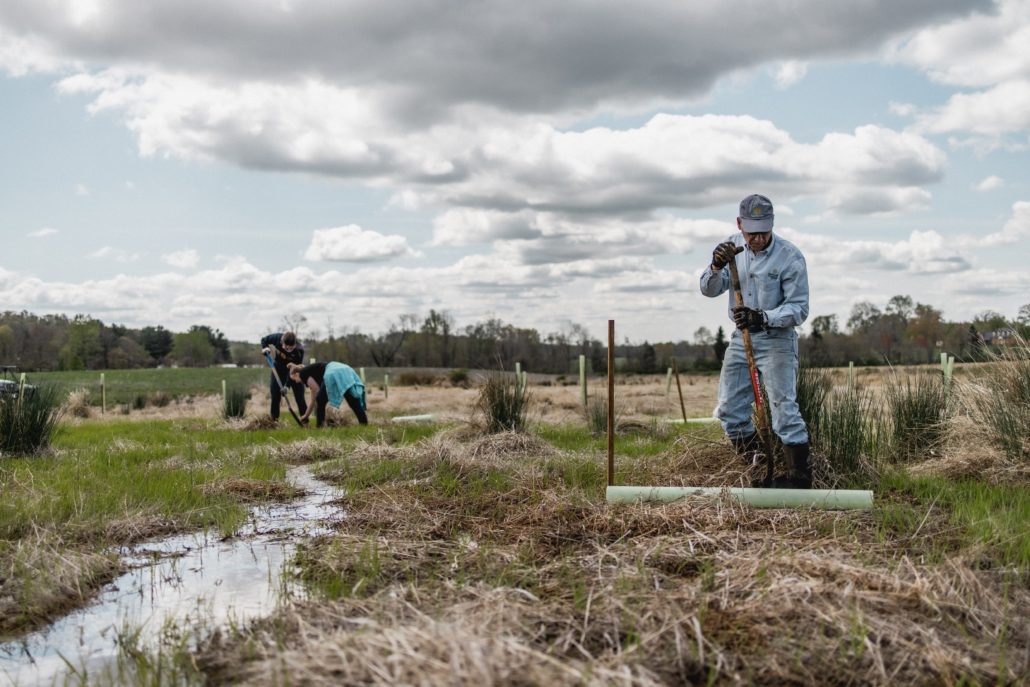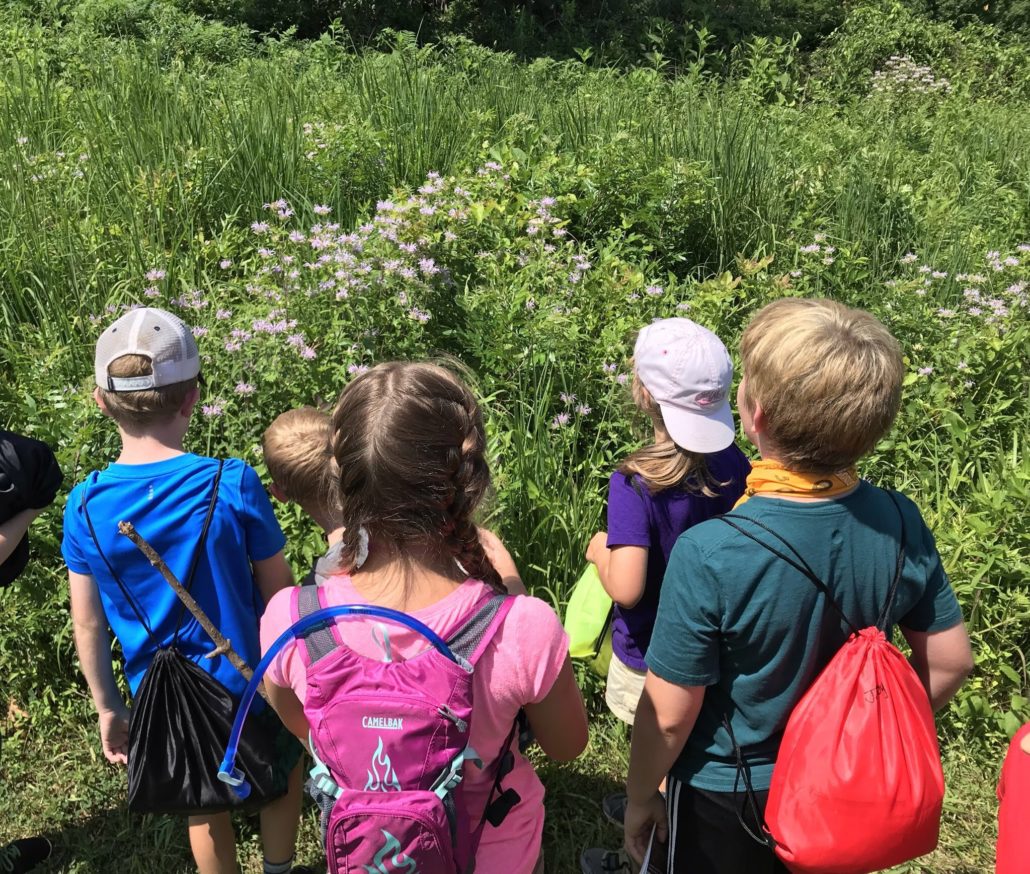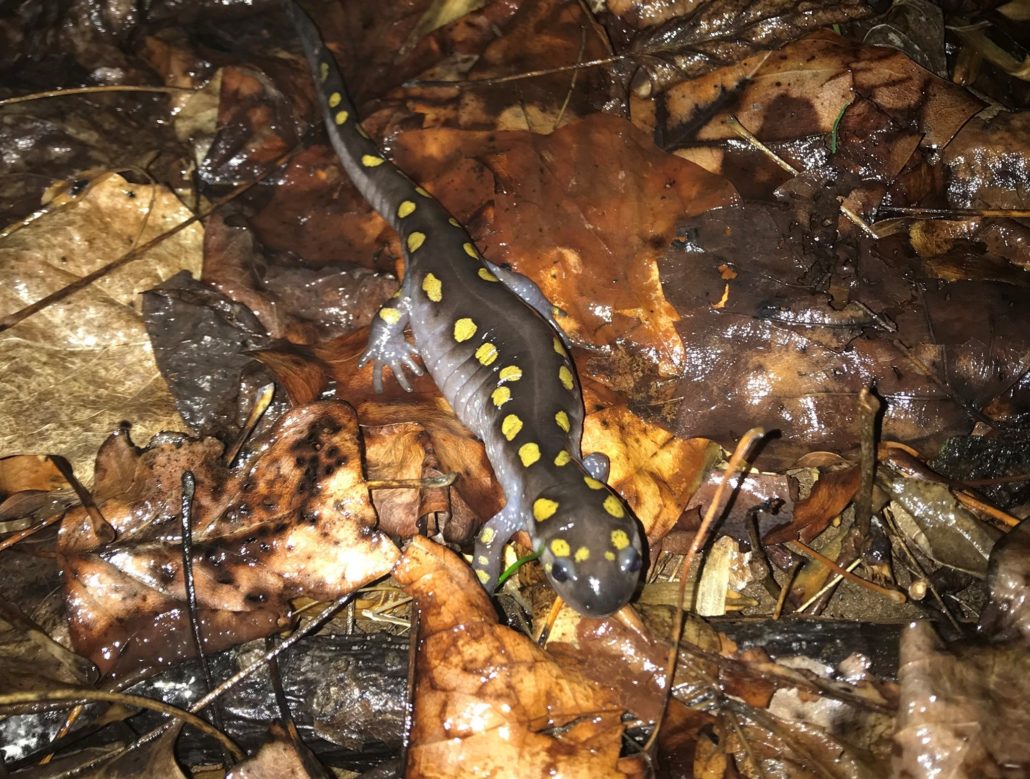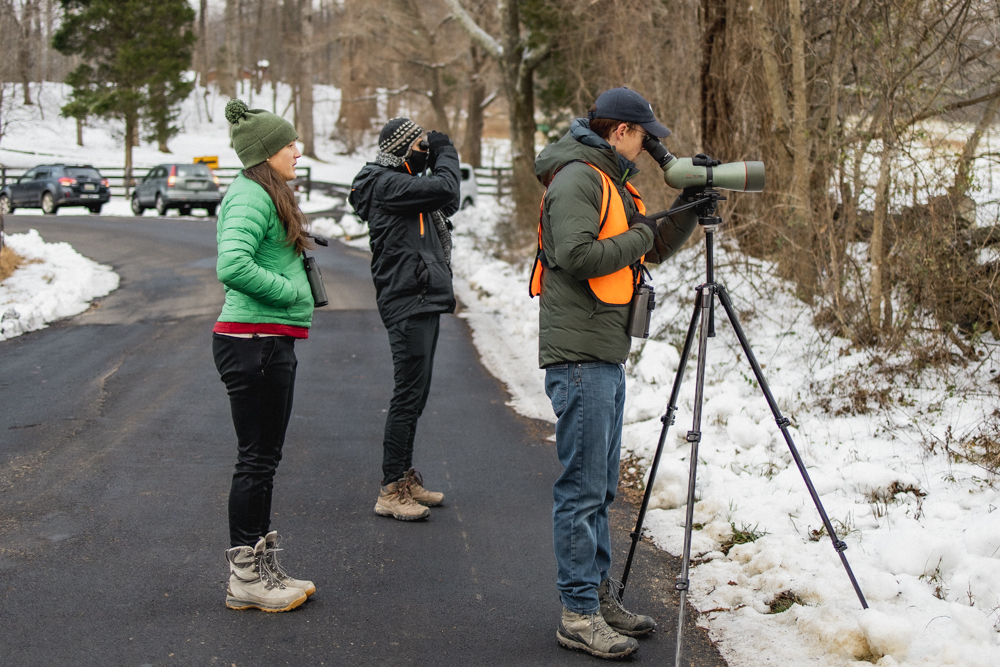New trees will improve environmental health and provide critical wildlife habitat
Warrenton, Virginia | April 10, 2021
This spring, Clifton Institute staff and volunteers will plant nearly 1000 trees at the organization’s field station in Warrenton, Virginia. The trees will be planted along creeks in a 100-acre grassland to create riparian buffers that will prevent soil erosion and improve water quality. In addition, the new trees will provide critical wildlife habitat, including shrubs for bird nest sites and tall trees for raptor perches. Many oaks and birches will be planted, which are important host plants for moth and butterfly caterpillars that provide great food for baby birds. The species of trees to be planted include:
- Pin Oak (Quercus palustris)
- River Birch (Betula nigra)
- Sycamore (Platanus occidentalis)
- Silky Dogwood (Cornus amomum)
- Silver Maple (Acer saccharinum)
“This work will improve the quality of the habitat on our field station and will help us teach our community about the importance of native plants and riparian buffers,” said Bert Harris, Executive Director of the Clifton Institute. “We are so grateful for the help of our dedicated volunteers! We couldn’t do this without them.”
In all, the project will require 350 volunteer hours to complete. Throughout the year, the Clifton Institute provides many other nature-based volunteer opportunities, including bird box maintenance and monitoring, biodiversity surveys, education assistance, and more. Anyone interested in participating in tree planting or other volunteer events can sign up at cliftoninstitute.org/events.
To learn more about volunteer opportunities at the Clifton Institute, click here.
To learn more about the Clifton Institute, visit cliftoninstitute.org.
# # #
The Clifton Institute is a Northern Virginia-based non-profit whose mission is to inspire the next generation of environmental stewards, learn about the ecology of the northern Virginia Piedmont, and conserve native biodiversity. We accomplish this mission by providing environmental education to people of all ages, carrying out ecological research, and restoring habitat for native plants and animals. Our 900-acre property in central Fauquier County, which is permanently protected under a conservation easement, provides a beautiful and easily accessible environment for our programs. For more information, visit cliftoninstitute.org, like us on Facebook and follow us on Instagram.




